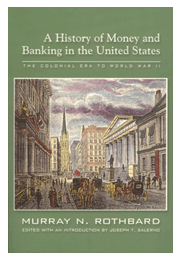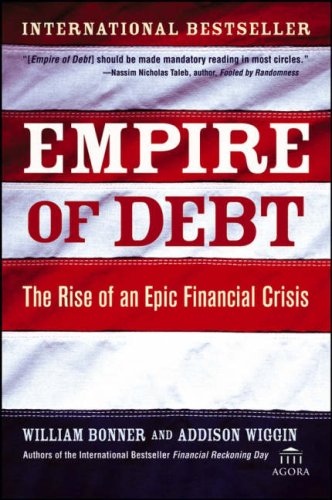
A Foreign Policy of Freedom
By Ron Paul
Foundation for Rational Economics and Education, Inc., 2007
371 pages. $13.57
In The Decline of the West, Oswald Spengler examined in detail the concepts of war and peace as national philosophies, which, in today’s world we call ‘foreign policy.’
Regarding military intervention, Spengler wrote, “Life if it would be great, is hard; it lets choose only between victory and ruin, not between war and peace, and to the victory belong the sacrifices of victory.” As for peace, he wrote, “It begins with the State-destroying wish for universal reconciliation, and it ends in nobody’s moving a finger so long as misfortune only touches his neighbor.”
In other words, Spengler didn’t think much of either philosophy. However, if he had to choose, he would opt for military intervention.
Ron Paul disagrees. In his book A Foreign Policy of Freedom, he argues for armed neutrality rather than international intervention. In Paul’s opinion, intervention almost always fails to attain its goals. It does more harm than good, and destroys both the freedom and rights of everyone concerned.
Essentially, then, Ron Paul is urging a return to the Monroe Doctrine, which stated that the U.S. would not interfere in the internal concerns of Europe. Intervention would only occur if foreign entities interfered in the Americas.
A Foreign Policy of Freedom is a compilation of Paul’s statements to Congress over the last 30 years. All the statements concern a foreign policy revolving around non-interventionism. To add contemporary immediacy to the statements, Paul has inserted updated comments throughout the book.
The first statement was made in September of 1976, upon the death of Mao Tse-Tung. Paul described Mao as a monstrous dictator responsible for enslaving millions of people. He urged America to eschew European balance-of-power politics. And went on to say “that the American people now seem to equate a moral foreign policy with an interventionist foreign policy.” Paul urged America to stand against tyranny by publicly condemning it and withdrawing any type of support. Yet he emphasized that condemnation did not imply intervention.
The fourth chapter presents the statement Paul made at the time of the Falkland Crisis, in 1982. He pointed out how America’s foreign policy placed it between a rock and a hard place. When Britain and Argentina skirmished, the U.S. was committed to defend both sides. The NATO alliance demanded that America side with Great Britain, while the Rio Treaty charged America with defending Argentina. In other words, the U.S. discovered itself in the middle of an impasse. There was no way out.
In his updated note, Paul states that NATO has taken on a life of its own. Despite the fact that the Soviet Union is no longer around, the U.S. remains committed to protecting Europe. As Paul writes, “This stands as an example that ‘short term’ commitments often become blank checks, with the tab paid by the American people.”
The very next section is a humdinger. Paul stated that 60% of the U.S. military budget was “being spent on the defense of other nations.” He then went on to point out that none of America’s NATO allies would have come to it defense it the Soviet Union had attacked.
According to Ron Paul, the U.S. foreign policy was nothing more than the U.S. trying to play both sides against the middle. And when a country does that, they often end up getting squeezed.
This disastrous halfway policy was the again the subject in Mr. Paul’s statement of 1983, wherein he spoke about the ongoing Middle East Crisis. “Since our dollars flow to both Arabs and Israelis, we will not be inclined to allow either side to decide for itself what is in its own best interest.” Paul stated that, in reality, the U.S. had denied Israel its sovereign rights. He asserted that America’s responsibility was to itself, not to policing the world. Policing the Middle East conflict had done nothing except cost the U.S. billions of dollars. Absolutely nothing had been accomplished. The situation was “as hot and dangerous as ever.”
Chapter 9 presents Ron Paul’s statements about U.S. foreign policy and the bombing of Iraq in 1998. Paul pointed out that “we were allies of Iraq when it used poison gas against the Kurds and across the border into Iran. We support the Turks, even though they murdered Kurds, but we condemn the Iraqis when they do the same thing.” According to Paul, this crazy policy was motivated by “Arab oil, weapon sales, and Israel.” He felt such a policy only placed America at greater risk. Non-intervention was the single most efficient way of guaranteeing American freedom.
One of the more interesting sections of the book contains Paul’s statements subsequent to 9/11. He supported increased security measures, but at the same time did not want to infringe on the personal liberties of American citizens. He also stressed carefully identifying the enemy before launching retaliatory attacks.
It is important to note that Paul asserted “after our being attacked on 9/11, there was no alternative other than to respond.” Nevertheless, as he makes clear later in the book, Paul felt that “unchecked fear of another 9/11-type attack constantly preoccupies our leaders and most of our citizens, and drives the legislative attack on our liberties.” And he pointed out that sadly the Iraqi people were no better off for having been liberated from Hussein. Their city was flattened and foreign soldiers patrolled their streets. Basic utilities were lost. And more than 100,000 Iraqis died. In addition, promised oil production did not occur and the price of gas in the U.S. went higher and higher.
In 2006, Paul stated that nothing had changed. “The neo-conservative warriors are still in charge, and are conditioning Congress, the media, and the American people for a pre-emptive strike on Iran.”
Paul provides an overview of what a non-interventionist foreign policy looks like in the summary of the book. His proposal called for three steps: the basic principle was to never “initiate an attack on another country!” Second was that the U.S. government should recognize other nations right to self-determination. The third step involved “strategic independence rather than international entanglements.”
Whether one agrees with Ron Paul or not, A Foreign Policy of Freedom asks critical questions about America’s foreign policies. The questions demand thorough investigation by reasonable individuals. Only after such questions have been answered can any nation advocate a foreign policy in good conscience.
The only flaw in the book is that each of the statements reflects all the others. If you’ve read one, you’ve read them all. And admittedly, to some, Paul’s philosophy will sound more than a little like “better red than dead.” However, that’s not the case. But the book must be read to understand why it’s not.
![]() On the Read-O-Meter, which ranges from 1 star (lousy) to 5 stars (great reading), A Foreign Policy of Freedom comes in at 4 stars.
On the Read-O-Meter, which ranges from 1 star (lousy) to 5 stars (great reading), A Foreign Policy of Freedom comes in at 4 stars.


